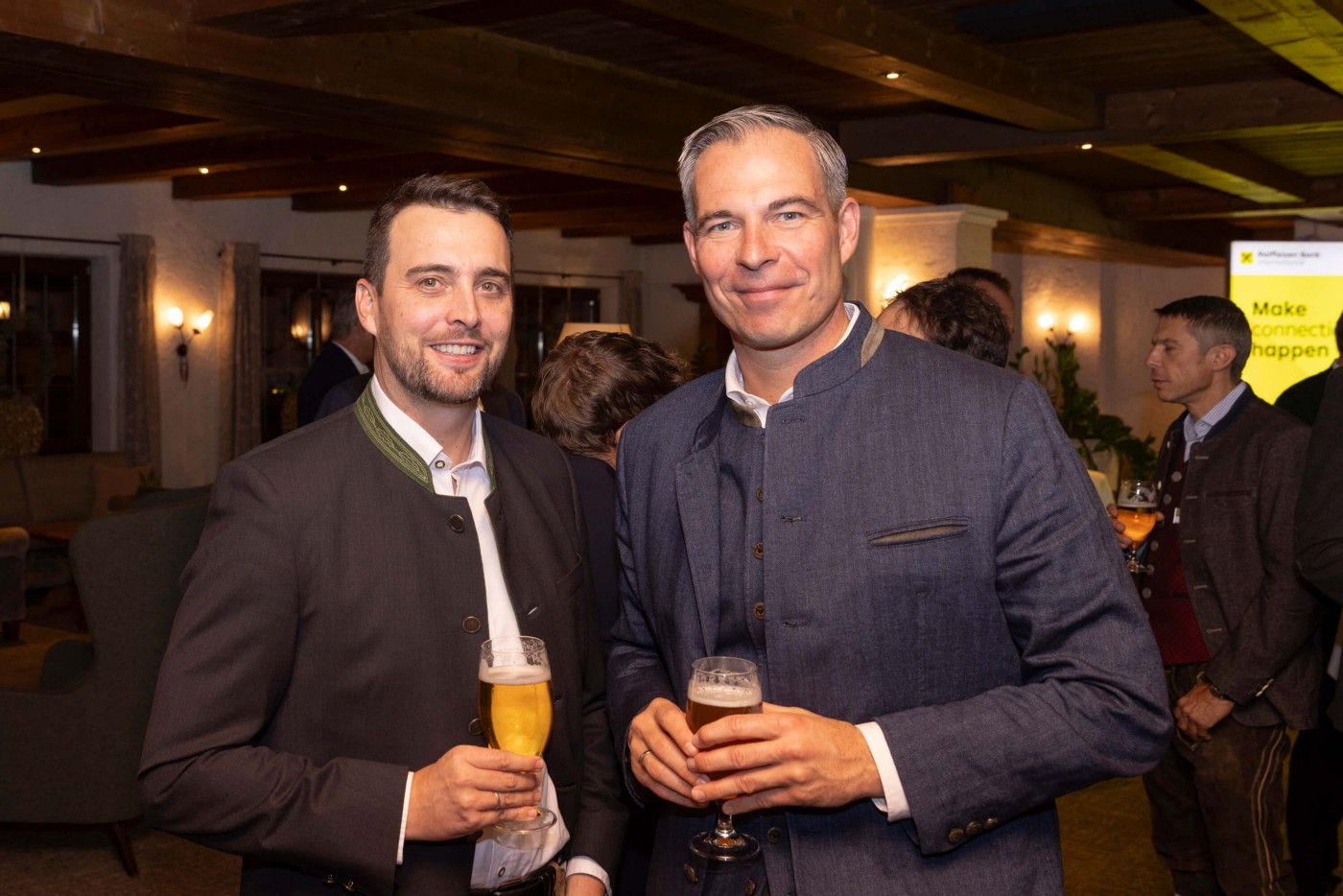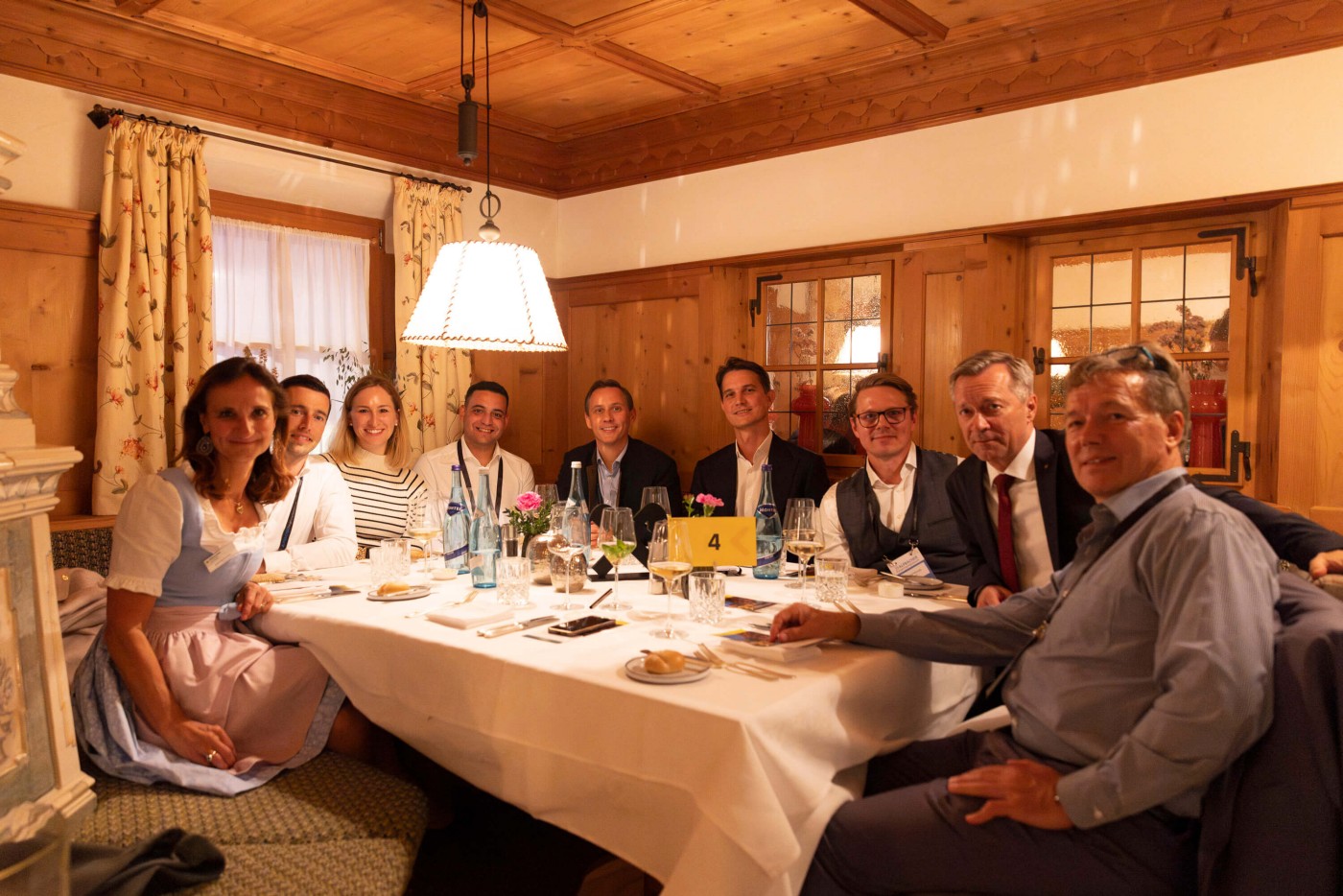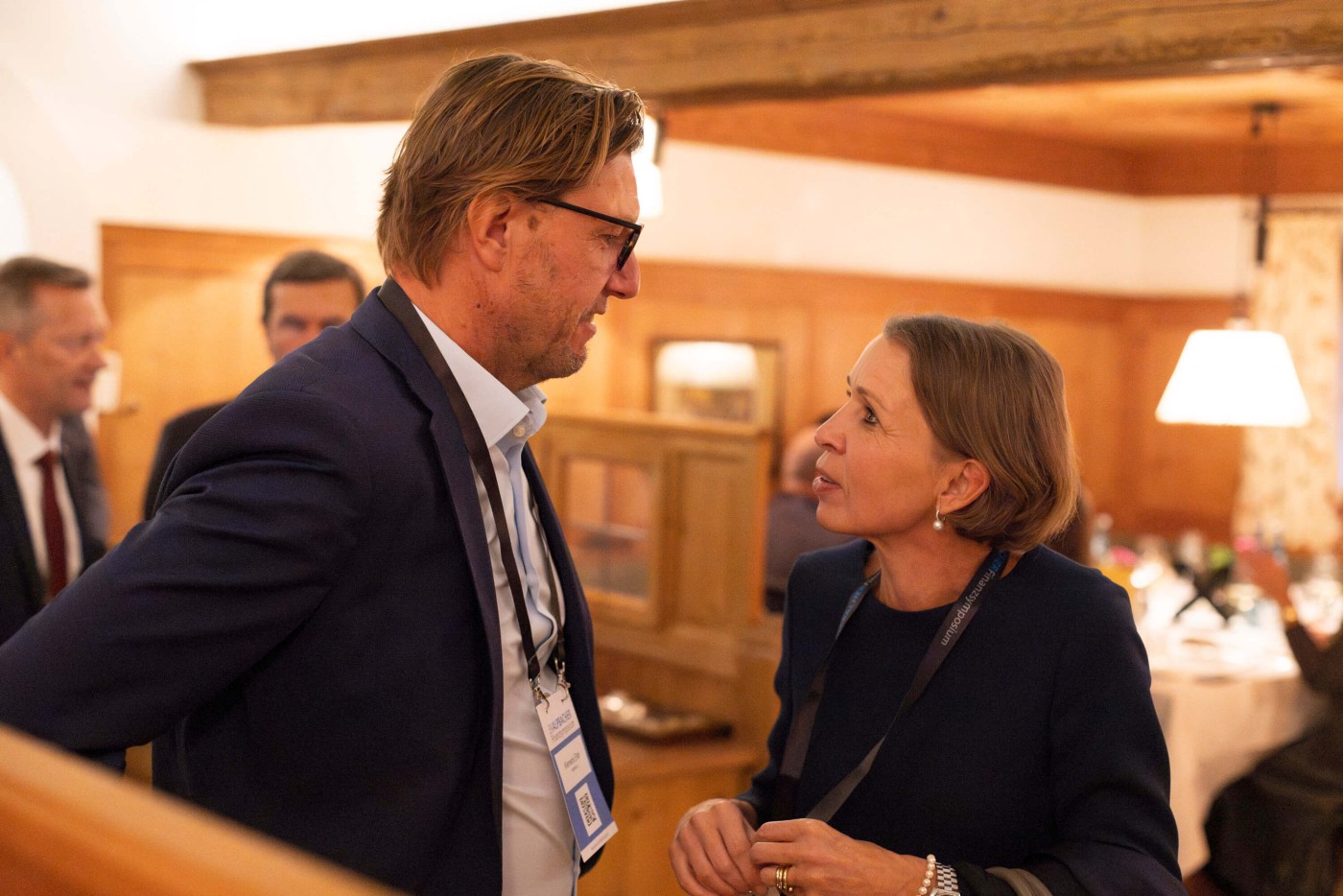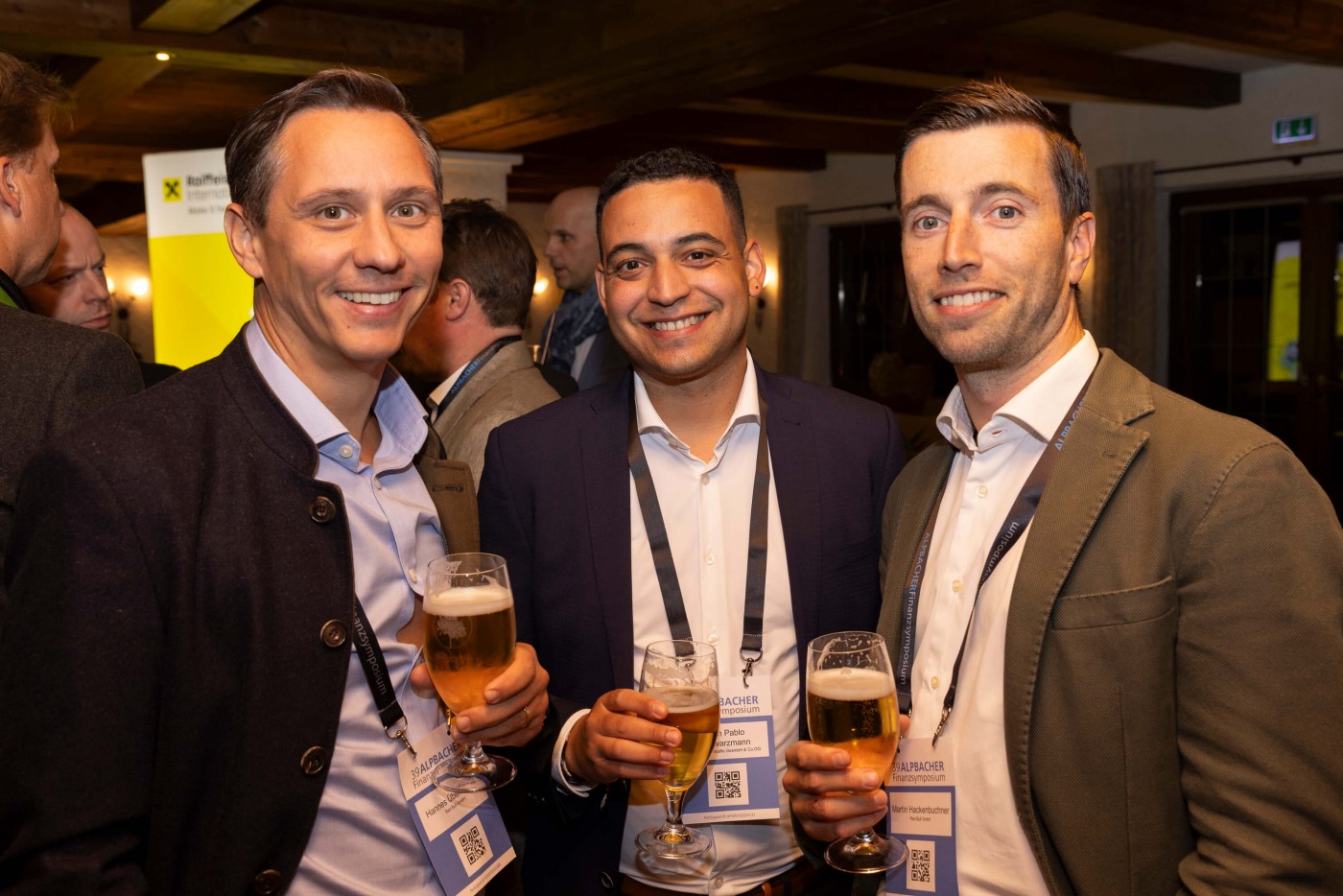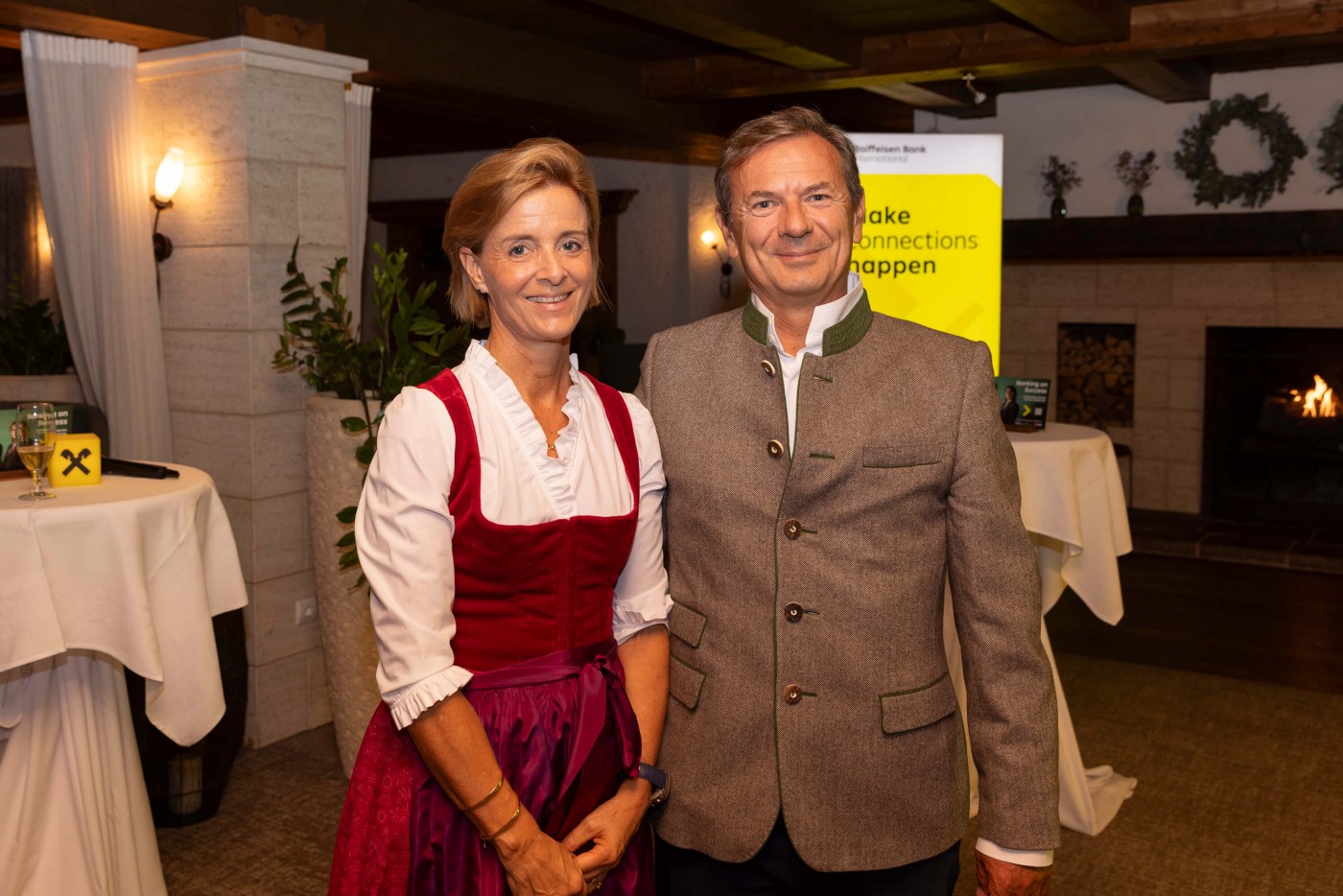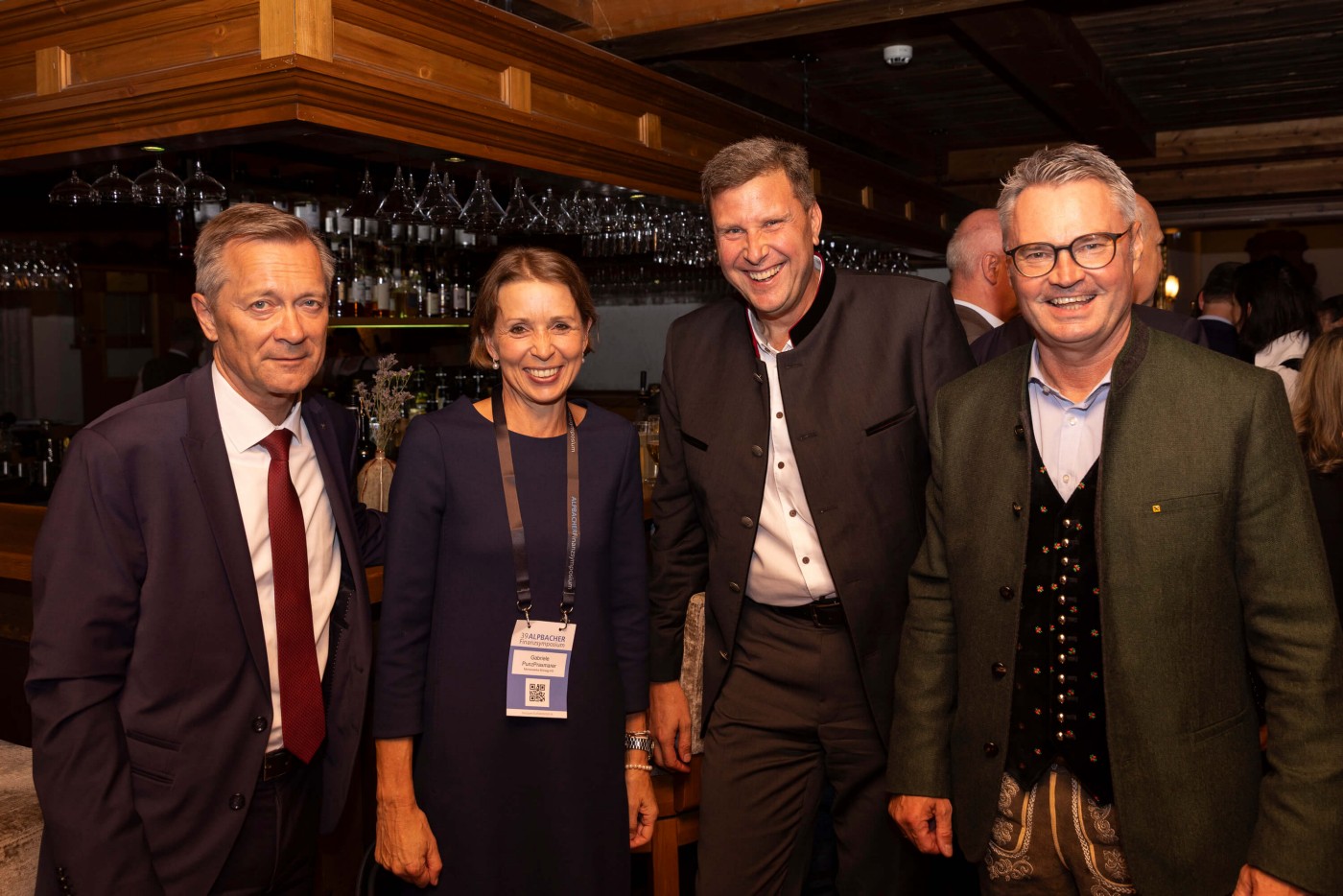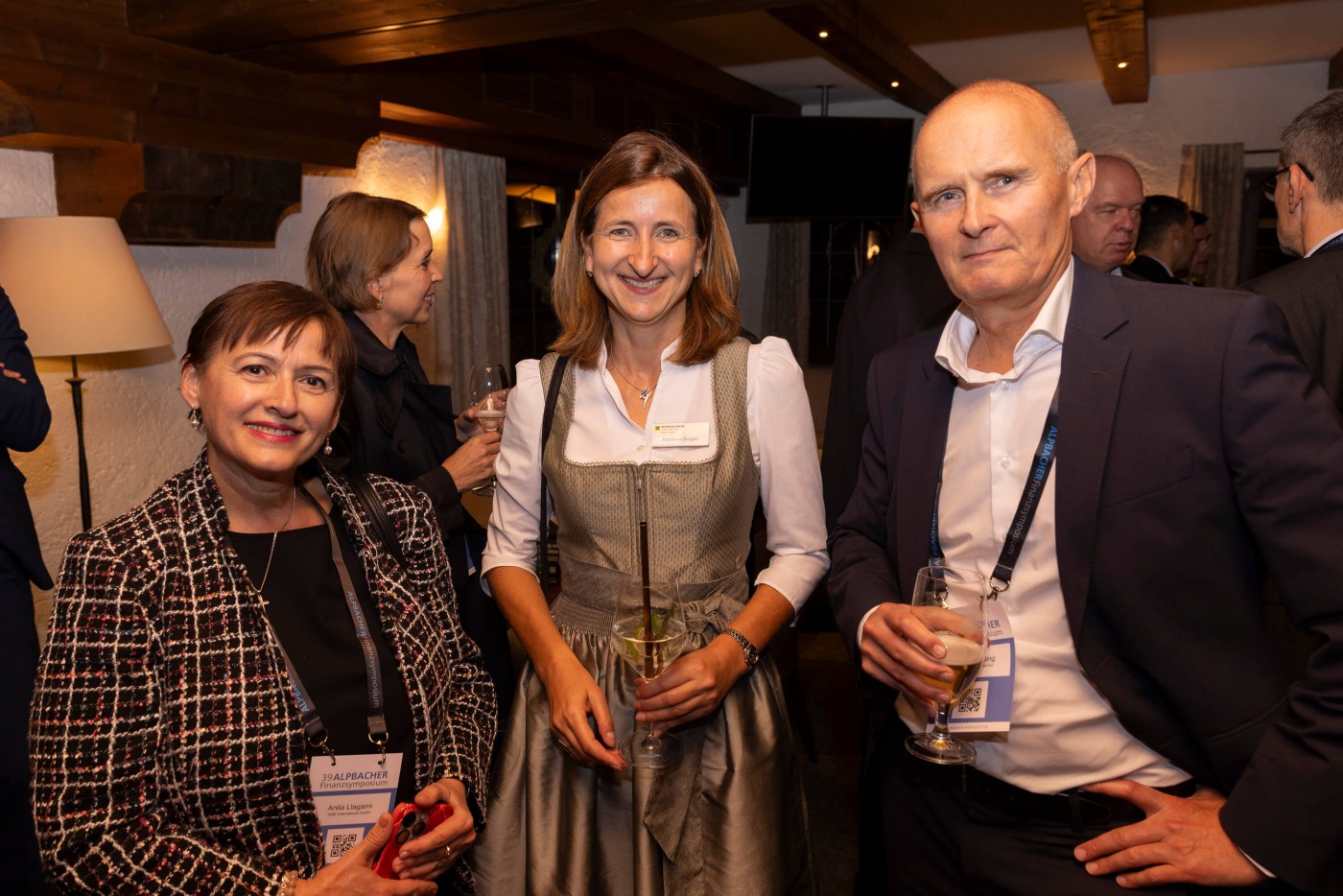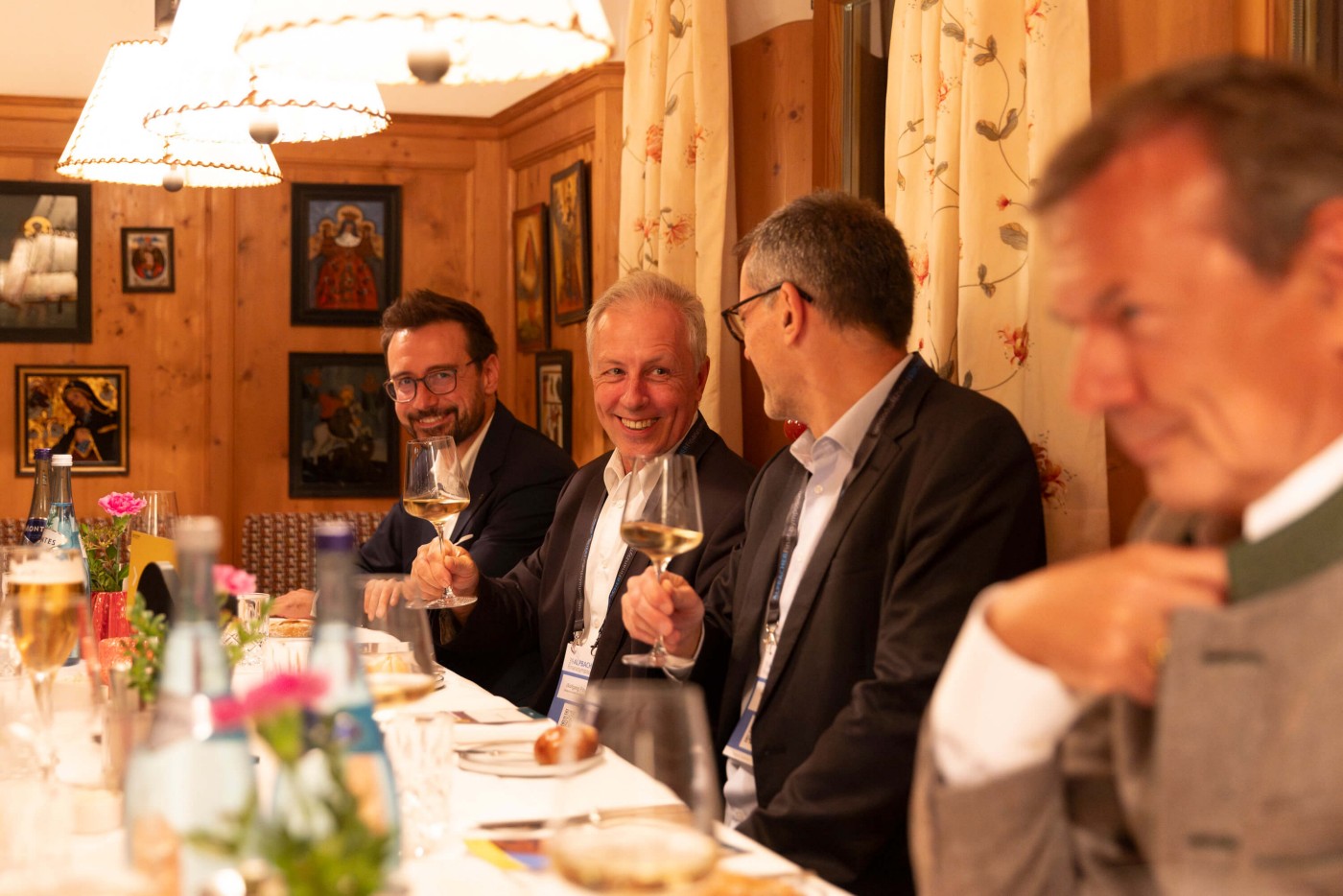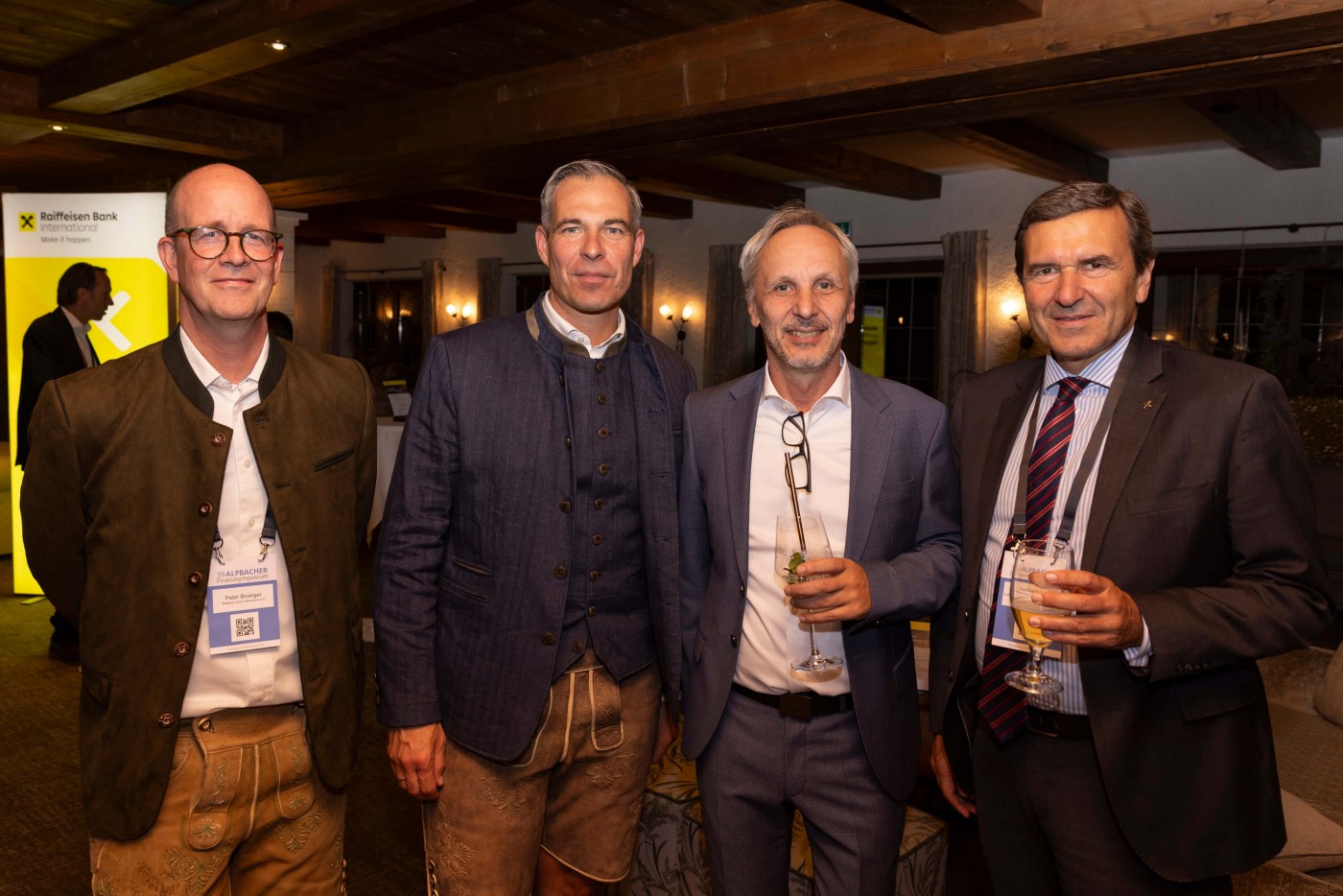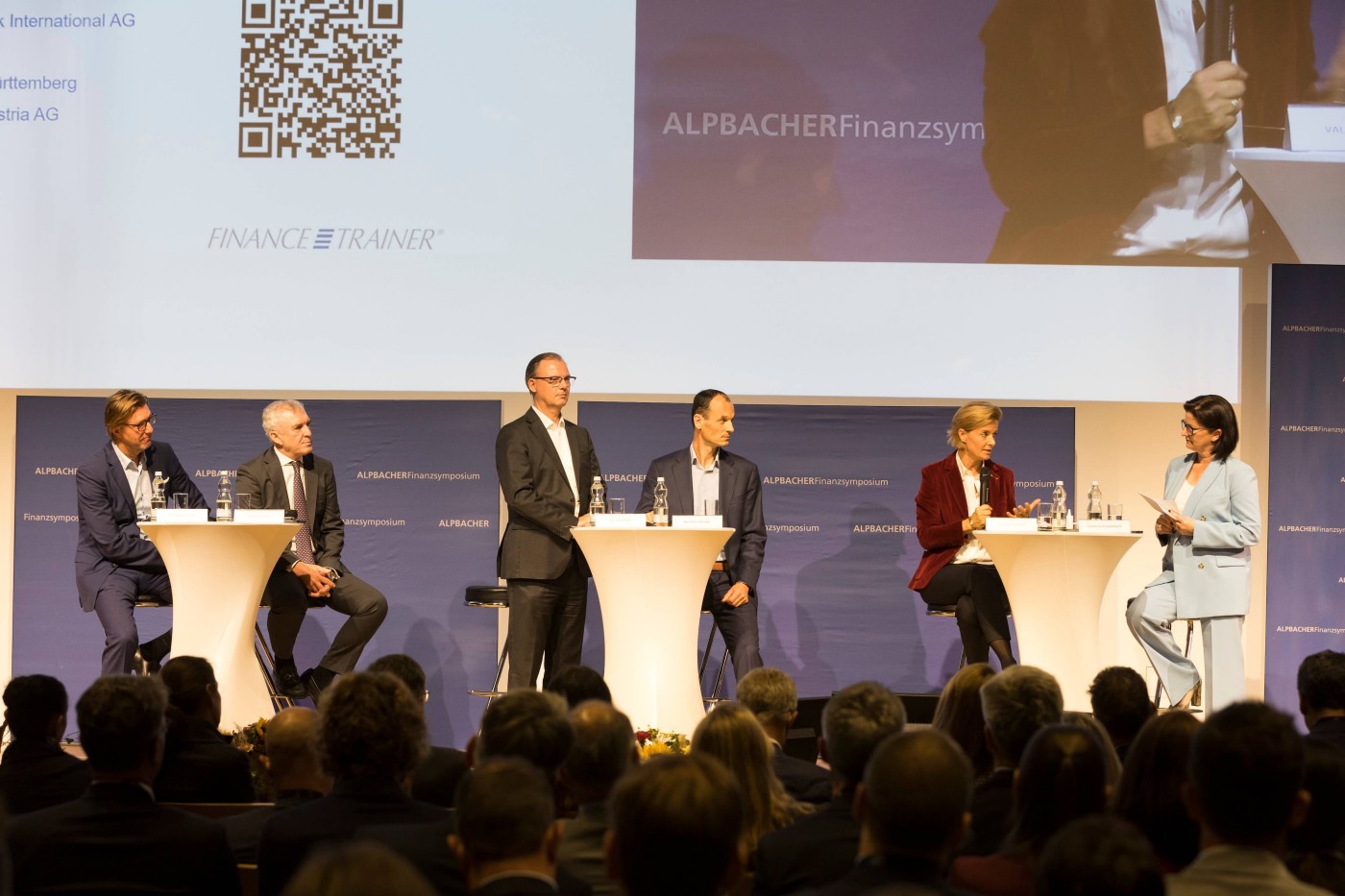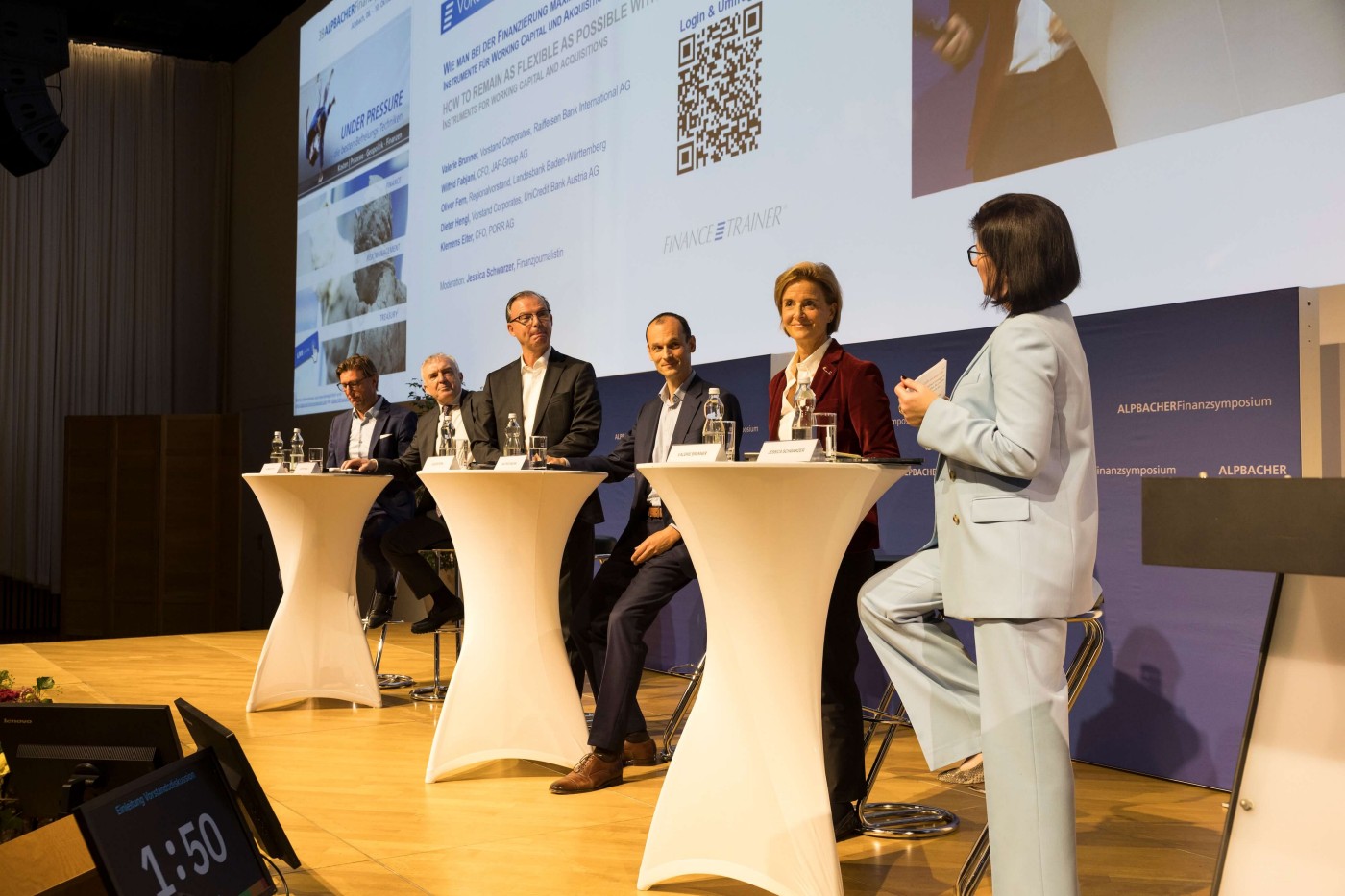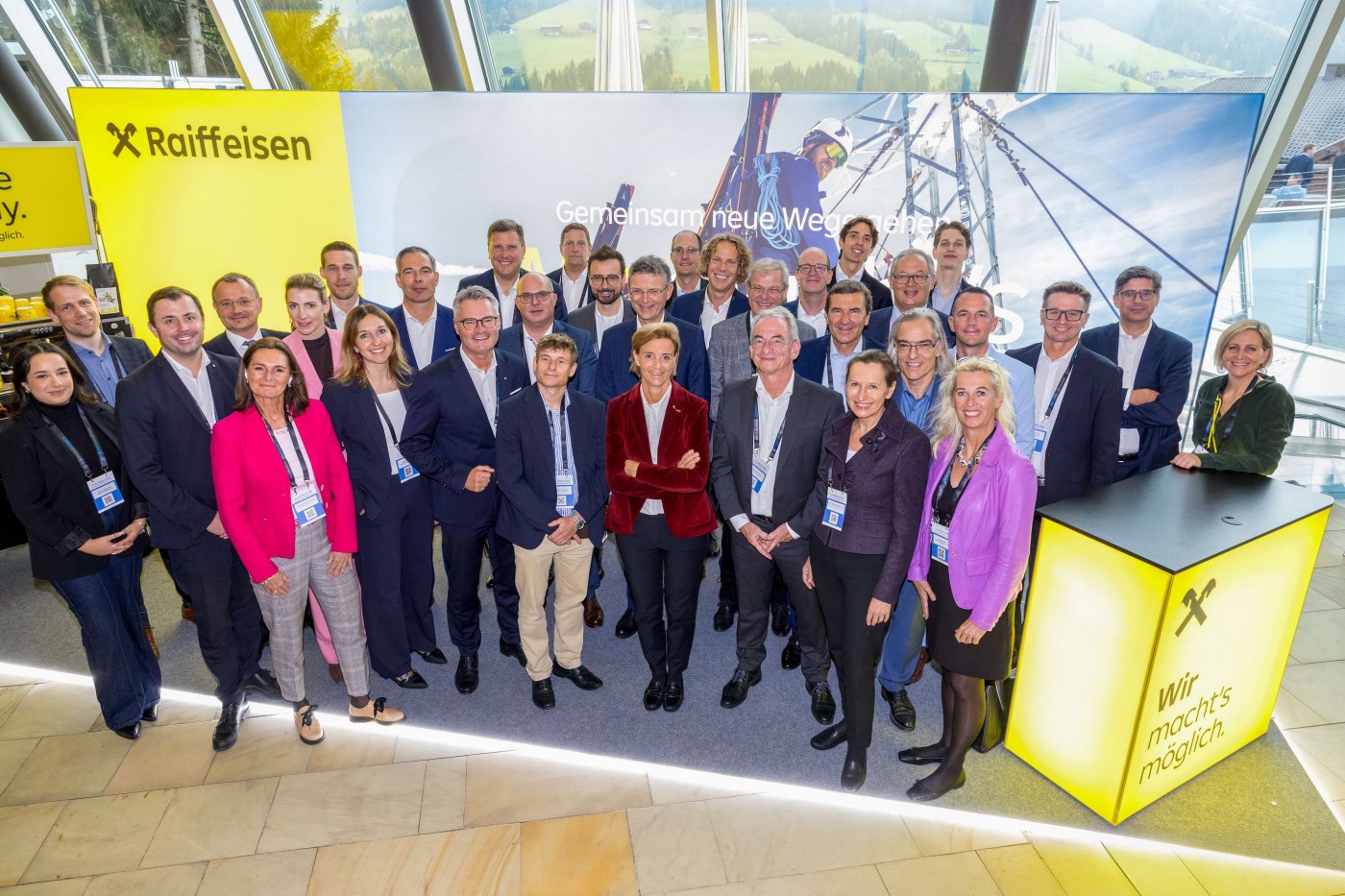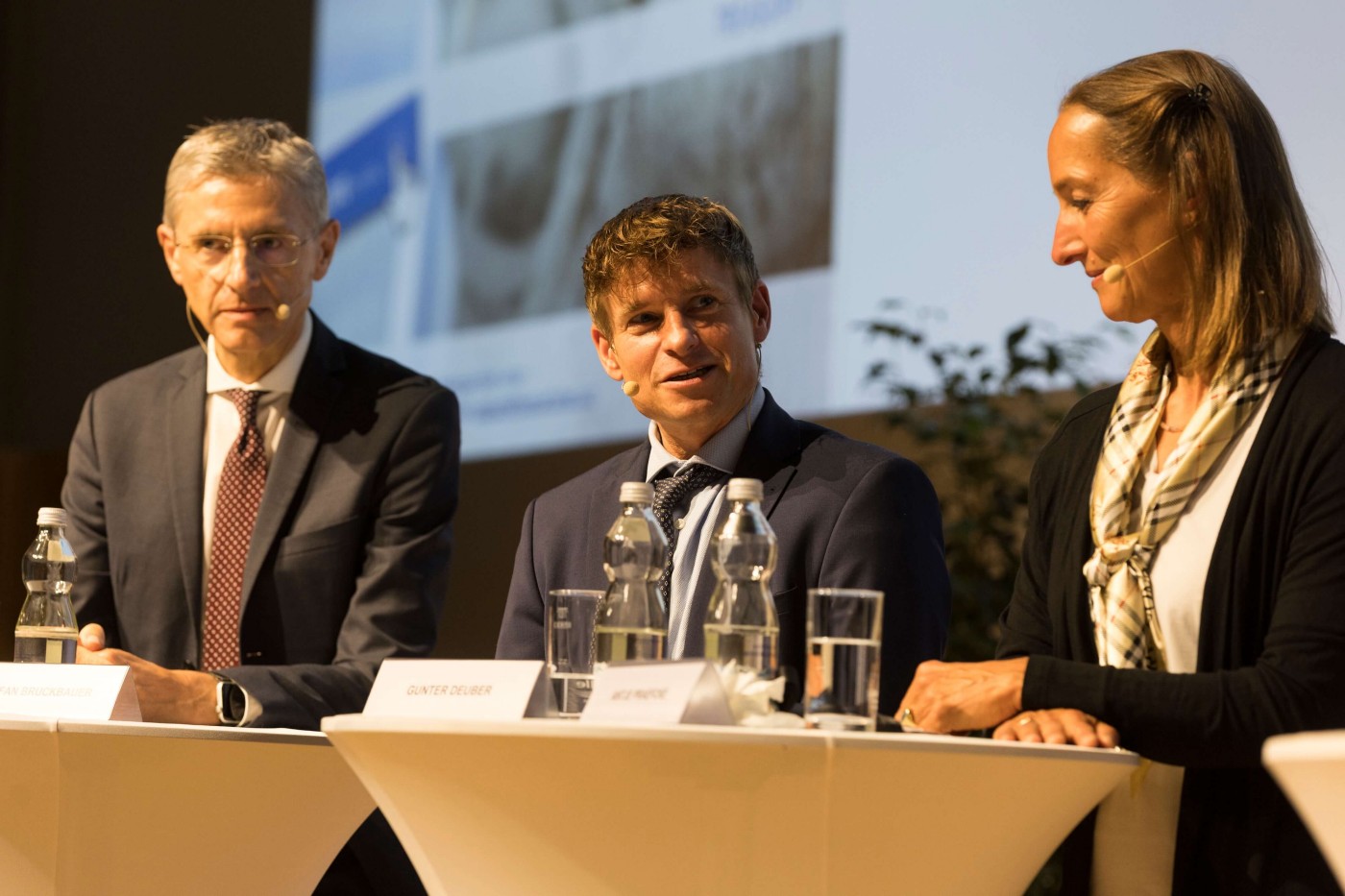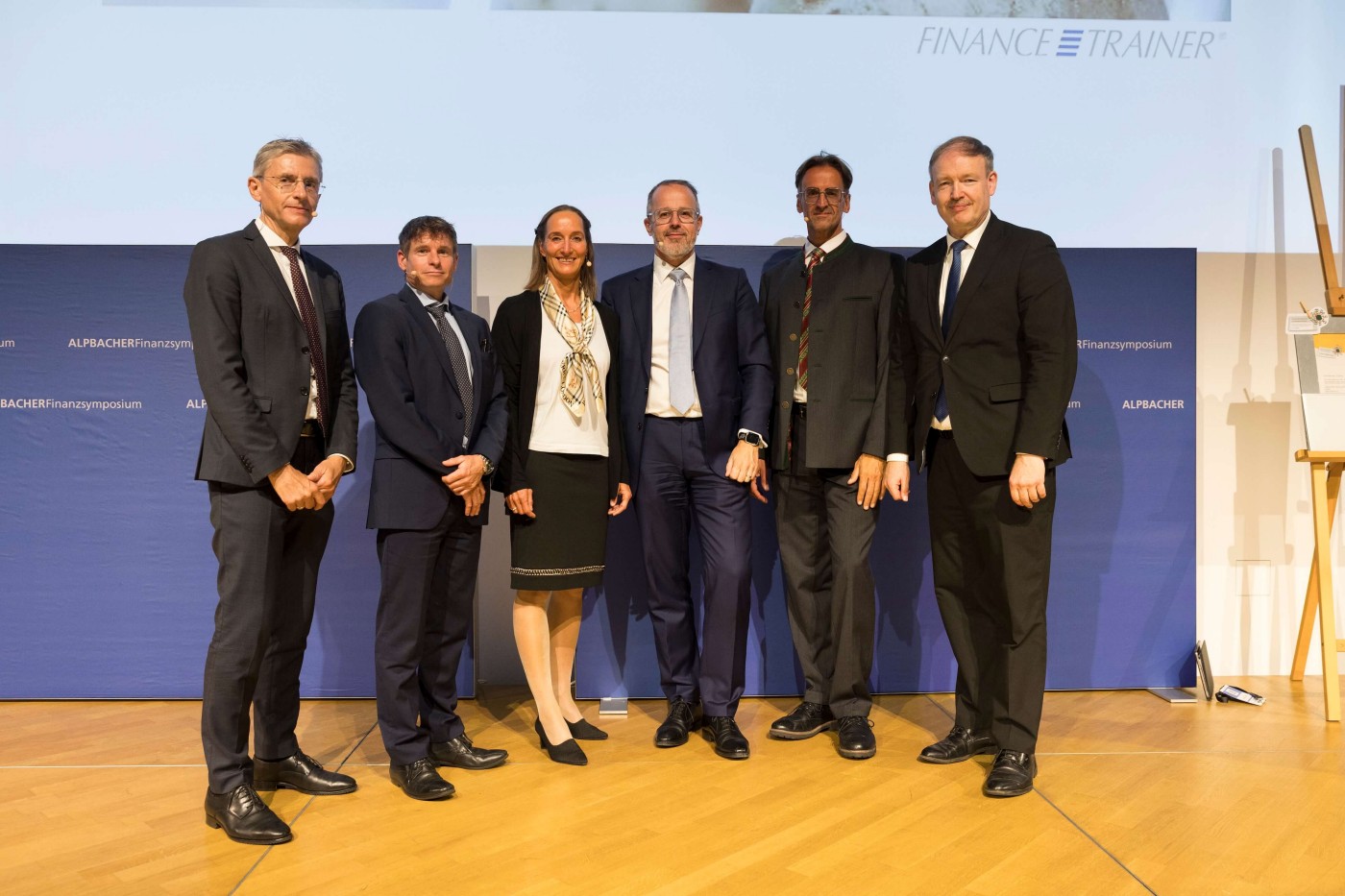
Finance in Focus: 39th Alpbach Finance Symposium
The 39th Alpbach Finance Symposium 2025 united the finance world and provided a dynamic platform for exchange and inspiration. Together with the Raiffeisen Landesbanken, Raiffeisen Bank International participated as a sponsor, facilitating lively discussions and valuable insights.
From October 8 to 10, 2025, CFOs, treasurers, and executives from the DACH region gathered at the 39th Alpbach Finance Symposium. Raiffeisen Bank International partnered with the Raiffeisen Landesbanken as a sponsor, emphasizing collaboration and innovation.
A highlight of the event was the exclusive RBI dinner at Hotel Böglerhof on the opening day, Wednesday, October 8, at 8:00 PM. In this inspiring atmosphere, participants forged valuable connections and engaged in deep conversations with clients and partners.
The agenda of the symposium featured a variety of exciting debates, including the Executive Panel "How to Remain as Flexible as Possible with Financing: Instruments for Working Capital and Acquisitions." Jessica Schwarzer moderated this high-profile session, which included contributions from Valerie Brunner, Wilfrid Fabjani, Oliver Fern, Dieter Hengl, and Klemens Eiter. During the panel, Valerie Brunner emphasized: "There is a broad array of instruments available to finance working capital and special situations. To be prepared for strategic moves, regular exchange with your banking partner is essential."
Another central topic was the "Interest Rate and Currency Outlook," led by Christian Helmenstein. Gunter Deuber presented the challenges and prospects for interest rates and government deficits, and discussed these with Gerhard Massenbauer, Jürgen Michels, Antje Praefcke, and Stefan Bruckbauer.
Following the inspiring discussions at the 39th Alpbach Finance Symposium, which addressed key topics such as financing and market strategies, attention turned to the challenges and opportunities arising from the current geopolitical and economic landscape. This year's Alpbach Finance Symposium focused on resilience, geopolitics, and new growth markets, particularly India.
The country presented itself as an interesting future growth market, while some business leaders and forum participants expressed a constructively skeptical attitude towards it.
In contrast to the opportunities in new growth markets, the challenging economic and investment conditions in Austria were discussed from various perspectives. The Chief Economist of the Federation of Austrian Industries powerfully illustrated how outdated the domestic capital stock is , while industry representatives focused on well-known issues such as wage and energy costs. It became increasingly clear that the willingness to perform is higher in many parts of the world than it is in Europe and Austria.
Regarding the geopolitical and geo-economic overall situation, numerous business representatives advocated for economic and trade policy pragmatism at the domestic and EU level. It is especially necessary to conclude trade agreements as long as the EU remains relevant.
Additionally, a nuanced approach to the challenge posed by China was discussed. The Chinese market can no longer be viewed merely as a simple production and growth market. On one hand, China is no longer a low-cost location; on the other hand, it has at least caught up with, if not surpassed, domestic companies in terms of product and quality standards in several sectors. Furthermore, China is consciously becoming independent from Western companies in many areas. Therefore, geopolitical naivety regarding China is not advisable.
Some international participants clearly stated that Europe can no longer be regarded as an industrial leader. Considering the outlined challenges in the industrial sector, it is essential to integrate and interlink the database in production, process, and financing. Only then, comprehensive and complex AI applications will be possible. Currently, Europe, particularly the DACH region, is not necessarily leading in this area. Many forum participants urged not only to focus on the short-term financial benefits of AI integration. A comprehensive engagement with AI at the corporate level also significantly enhances overall innovation and agility.
Considering the outlined macroeconomic challenges and the immense investment needs, numerous forum participants called for a clear political focus on fairness in industrial and trade policy. Additionally, the topic of civilian and military value creation needs to be thought of and interlinked more closely, for example, in the areas of drones, IT security, or communication security. In Austria, it will also be important not to interpret the issue of neutrality too narrowly.
The resilience in financing within the trade finance sector or in specific corporate situations, such as acquisitions, was a focal point of numerous panels and workshops—such as more complex supply chain finance solutions.
Moreover, many domestic companies are currently suffering from declining and/or below-average profitability, considering challenging domestic business conditions. Therefore, it is even more important to establish resilient corporate financing and to hedge interest and currency risks. Additionally, individual payment defaults in such a mixed situation can pose substantial challenges for companies.
The established Alpbach Interest and Currency Outlook once again provided an exchange on the interest and currency expectations of numerous bank economists. Gunter Deuber presented the current baseline assumptions from Raiffeisen Research regarding the interest and currency outlook for 2026.
